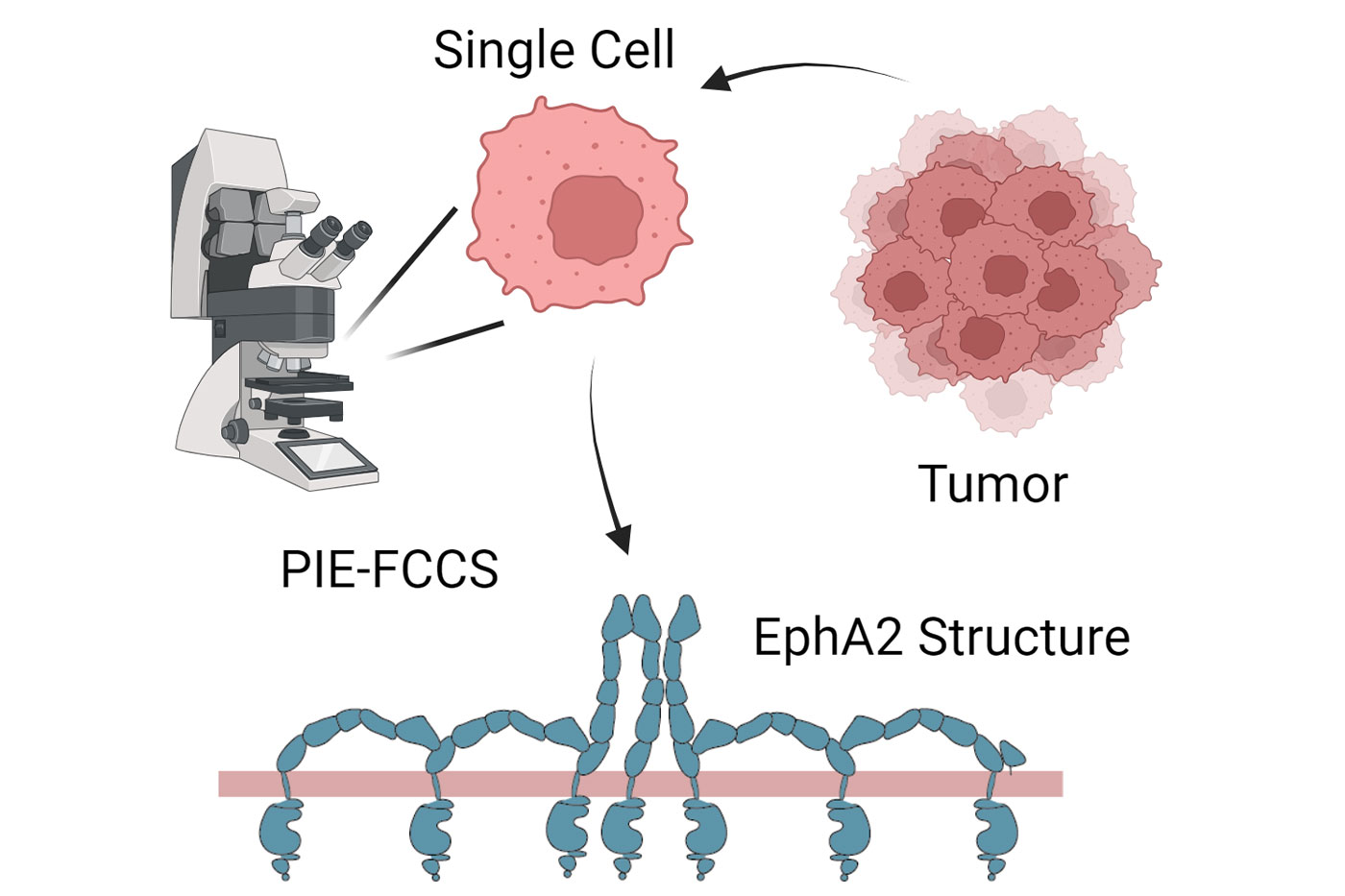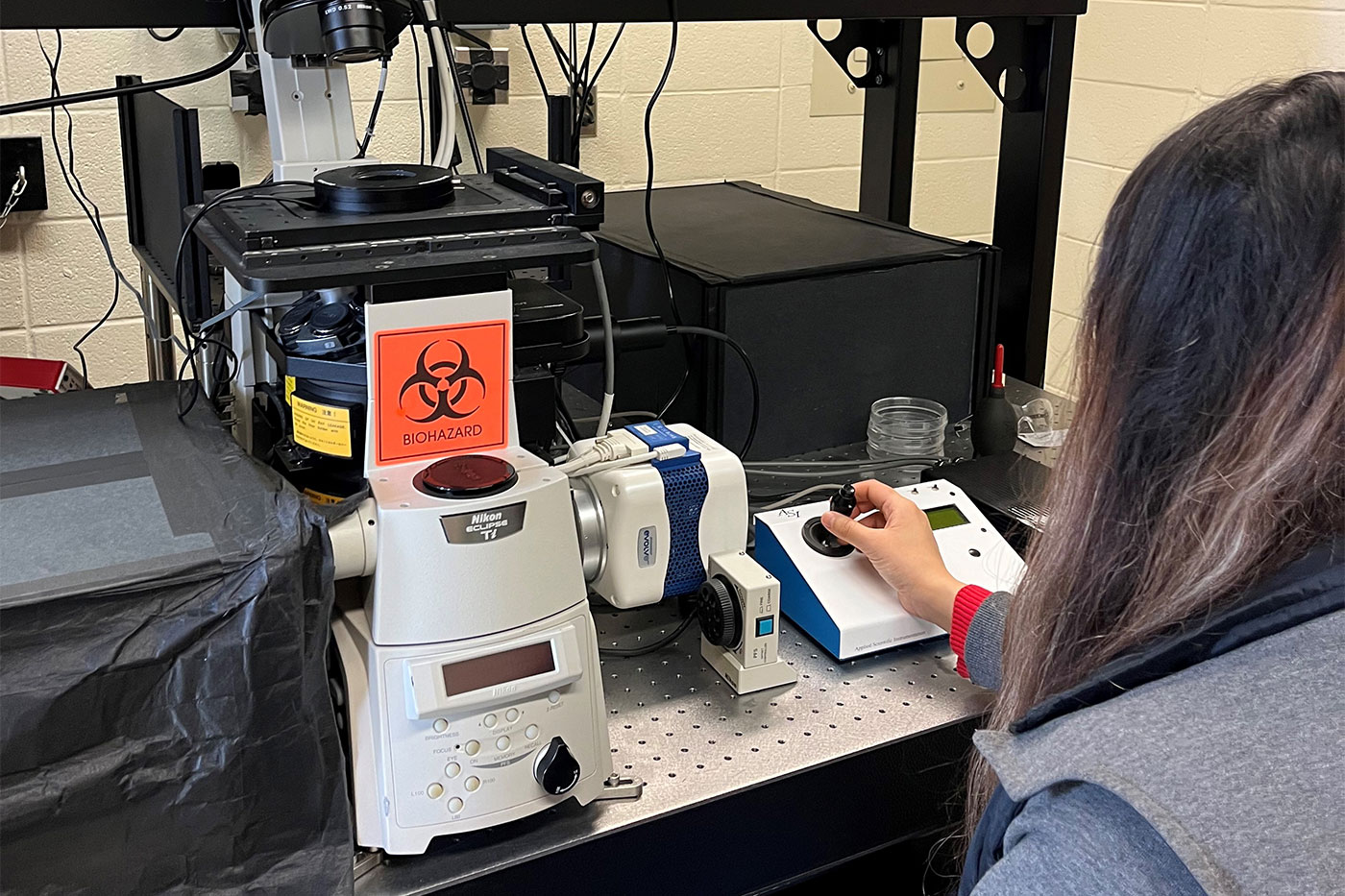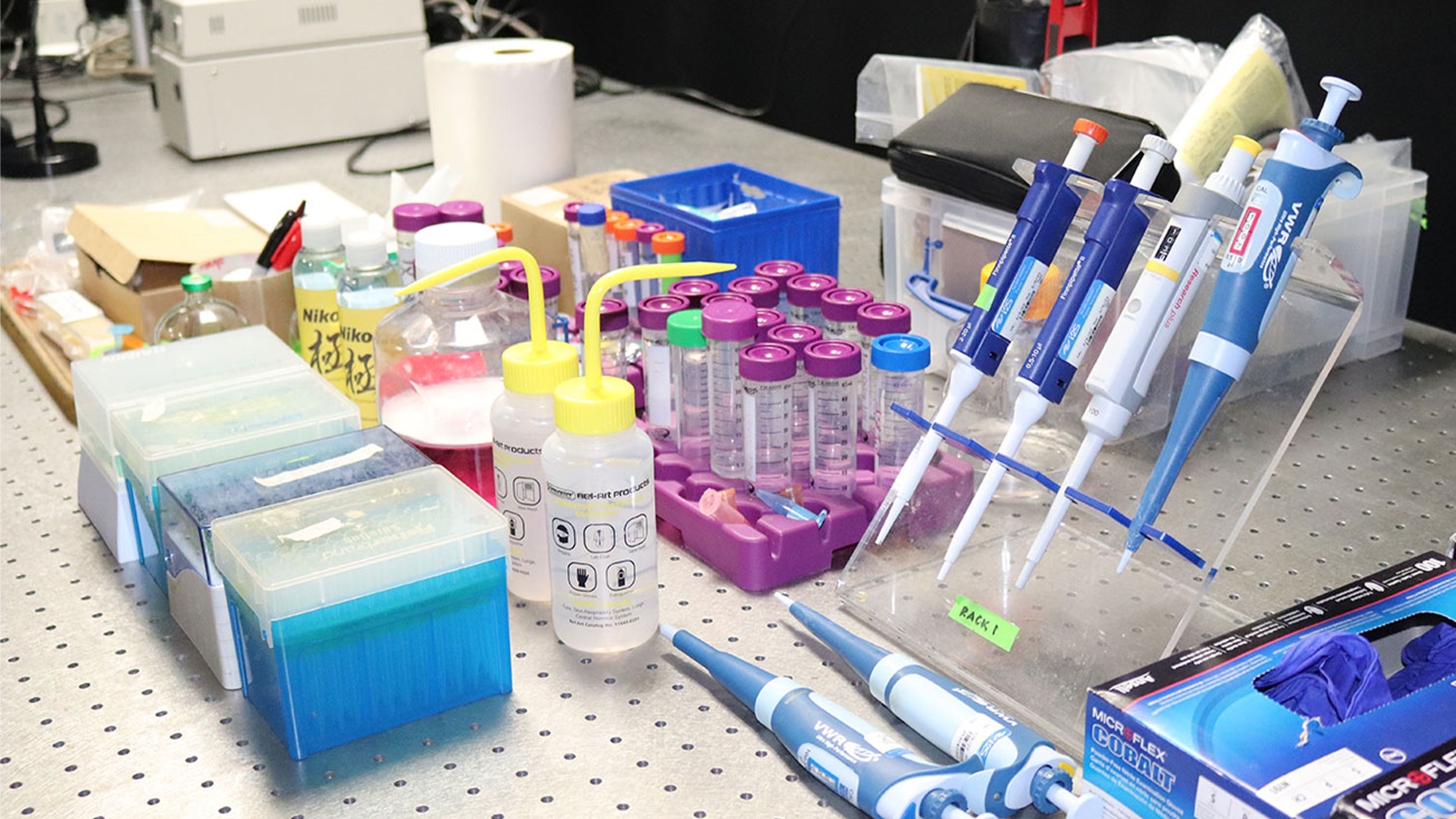Adam Smith’s research may one day open innovative doors for cancer treatment.
The joy of discovery has fueled Adam Smith’s research work throughout the past 20 years. Uncovering new connections and unlocking the unknown satisfy his professional curiosity while also contributing to the greater scientific community.
“I have always loved learning new things and discovering how things work,” he said. “I remember in my freshman chemistry class I was intrigued by principles that explained why some things have color or why some things are liquid and others are solid. Understanding how things work at the fundamental level has always fascinated me.”

That meticulous approach and painstaking attention to detail are hallmarks of his research at Texas Tech University, where Smith is an associate professor in the Department of Chemistry and Biochemistry. His focus is on the EphA2 protein and the role it possibly plays in the development of tumors – trailblazing work recently featured in the December issue of the journal Science.
“To publish in Science is to publish in one of the top-ranking journals in the world and is a mark of true academic excellence,” said Tosha Dupras, dean of the College of Arts & Sciences. “The journal is recognized internationally for its role in publishing groundbreaking and impactful research, and the college is proud to showcase Dr. Adam Smith’s research achievement.”
This marks the first time his work has appeared in Science, which zeroes in on and highlights the best research from across the spectrum.
“It collects the best stories from a lot of different fields,” Smith said. “To have an article in there is very exciting because it shows the innovative work we do at Texas Tech and the impact it can have in other areas.”
It is tremendous affirmation for Smith, whose research has been concentrated in this area for the past 10 years and who was drawn to Texas Tech because of related activity taking place on campus and at the Texas Tech University Health Sciences Center.
“I wanted to be at a place where there was more research in my interest area,” Smith said. “Texas Tech fit the bill in terms of the excellent research on campus as well as a lot of expertise in membrane proteins.”
Smith’s work targets proteins at the cellular level and could eventually have implications on how cancer drugs are developed. Typically, cells grow or divide or stop growing in a tightly controlled way, but on those occasions when cells turn cancerous, they grow out of control and can begin forming their own colonies that eventually turn into tumors.

Part of what takes place during this process is various proteins send signals to the cells telling them what decisions to make. Among these proteins is the EphA2 protein Smith and his laboratory team are investigating.
“These proteins are important because they manage signals on the surface of the cell,” Smith said. “There is a puzzle about what EphA2 does to encourage tumor growth or to keep tumors from growing.”
Smith’s team is looking specifically at how the protein behaves in certain situations to see if it directs cells to grow together or fall apart. If it is causing cells to group together, it could be a signal for tumor formation and an important step forward in cancer research.
The EphA2 protein already has been identified as occurring in breast cancer, prostate cancer and several other types.
“Overall, what we are trying to do is connect molecular scale information all the way to how this protein affects tumor development,” he said. “Our initial efforts were to develop a fundamental understanding of the protein’s role. With that information we can then develop better inhibitors to block tumor growth.”

Ultimately, the research could produce new treatments and new approaches in the continuing battle against cancer.
“If it turns out a specific protein interaction drives metastatic development, then a drug discovery team at a pharmacy company or university can develop a molecule to target that specific site,” Smith said. “Something that will disrupt that interface so that if you block the interactions, you stop tumor growth.”
Consistently remarkable work by cancer researchers in previous decades has resulted in tremendous progress being made in detection, treatment and recovery, but there remains a lot of work to do, especially in the space where Smith is operating.
“We’ve made a lot of strides in the scientific community on the genetic side to the point where it is almost miraculous what we can do,” he said. “When patients present with cancer symptoms, we can take a sample and sequence their entire genome. It took a lot of effort and work to get to that point.”
Now, a new scientific frontier beckons, and researchers such as Smith are turning their attention to tackling yet another difficult challenge.
“The next step, a very hard step, is looking at the downstream effects of genetic alterations,” he said. “Figuring out how genetic changes affect the encoded protein is still a very challenging problem. We are working to understand how mutations affect protein structure function and how that information can be used in drug development.”

